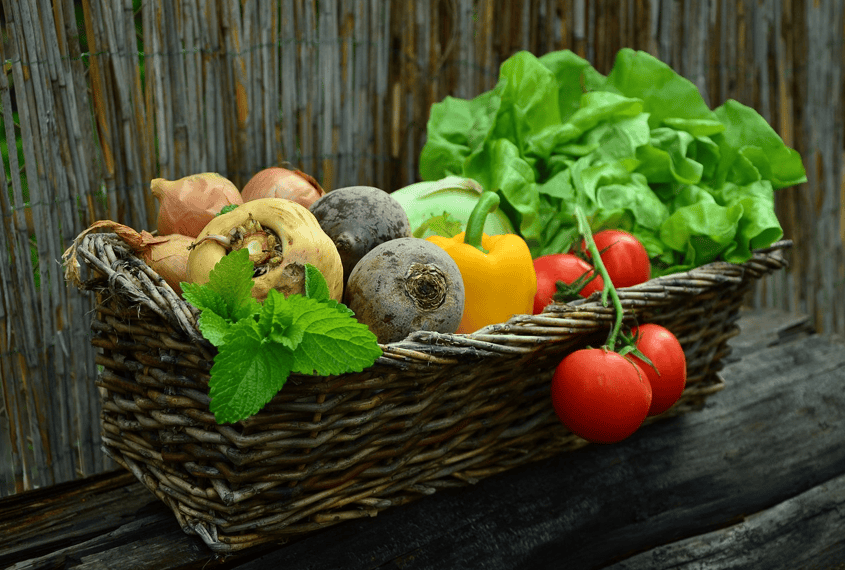
In a world with a population pushing over 8 billion, a rapidly changing climate, and finite natural resources, food production continues to be one of the most important and challenging issues that we face. Given our fast-paced lifestyles and penchant for convenience, it is hard to imagine a solution where environmentally sustainable, organic food production is prioritized. However, advancements in technology are working to help us do just that.
Organic farming is a farming technique that doesn’t involve the use of manufactured chemicals but rather relies upon natural pest deterrents and farming practices. The focus is also on retaining and building the health of the soil so it maintains its productivity over years of use. Although considered the preferred practice for human and environmental health, in the modern era it hasn’t taken off on a large scale because of lower yields but technologies like artificial intelligence (AI) could help to change that in a number of different ways.
Optimizing Agriculture
Perhaps one of the most exciting ways in which new tech can make a difference in organic farming is by optimizing some agricultural practices. For instance, data gathered using AI-powered machines can help farmers make important decisions such as where additional nutrients are needed or which portions of the fields are getting too much or too little water. If this information is connected directly to something like an autonomous drip watering system, AI can direct water to where it is needed most without wasting as much.
Another example of optimization in organic fields is through improved planting and picking practices. Seed planting technology can be outfitted onto existing equipment such as tractors or placed on drones — both are able to spread seed quickly and evenly. There are many efficiencies to be gained during the harvest of crops using AI-powered robotics. One experiment found that the robotic technology was able to pick strawberries at a rate 30 times faster than humans.
In organic farming, one of the most significant challenges is weed management. Here, new technology can help as well. AI-powered laser weeders are able to remove nearly 200,000 weeds per hour in large fields and enable traditional farmers to cut down on herbicide treatments by nearly 90%. This is a huge innovation for everyone concerned about the impact of toxic chemicals on human health and the environment.
Reducing Environmental Footprint
All of these technological advancements can help reduce the environmental footprint of traditional agriculture on the environment and could actually make it more feasible for organic operations to make it on a larger scale. Simply by using technology that makes weeds more manageable at a large scale, we can significantly cut down the toxic chemicals that are being released into the environment.
Organic food production is known to produce food with better flavor and a higher nutrient load. Part of this is tied to healthier soils that aren’t depleted from years of destructive monocultural practices. AI-driven technologies can continue to help organic farmers monitor and improve their soil conditions and prevent run-off or other forms of soil loss from things like overwatering.
As many organic farmers know, reducing food waste is also a huge part of the sustainability of organic farming. Composting is an important aspect of both reducing waste and creating high-quality soil. Here, new technologies can help once again. Predictive analyses and other types of advanced software can monitor compost, be set up to auto-rotate compost when it is needed, and can alert farmers when compost is ready for use.
Mitigating Climate Impacts
All of these changes and improvements can also add up to make a significant difference in agriculture’s contribution to climate change. As it stands, agricultural practices are estimated to produce 10% of the greenhouse gas emissions in the United States alone. Some of the factors that make this number so high include emissions from agricultural equipment, methane from livestock, particulate matter released into the air from soil erosion, and nitrous oxide released from fertilizers.
AI can assess the environmental impacts of certain agricultural practices as well as help find ways to minimize them on both large and small scales. Incorporating advanced technologies can help target watering to limit waste, reduce the need for chemicals and pesticides, help improve soil quality, and better manage agricultural waste products, which ultimately could lead to higher yields and lower costs. All while improving the local and global environment. It is a win-win situation.
***
Organic farming is an important component of living a healthy lifestyle full of fruits and vegetables containing nutrients. Advances in technology are capable of making organic farming more efficient and cost-effective. These tools could be a valuable tool in helping organic agriculture reach a larger portion of the population.
NutriFusion
NutriFusion develops all‐natural fruit and vegetable powders that are nutrient dense for when you do not have access to fresh produce…and even when you do to improve your vitamin intake. Sourcing only whole, non-GMO foods, NutriFusion offers consumers a concentrated micronutrient and phytonutrient-rich food ingredient blends. With a farm-to-table philosophy, NutriFusion’s proprietary process stabilizes the nutrients from perishable fruits and vegetables, allowing a longer shelf life and access to vital nutrients.
NutriFusion fruit and/or vegetable powders are for use in foods, beverages, supplements, and pet foods.
NutriFusion can help! Visit us at www.nutrifusion.com.


